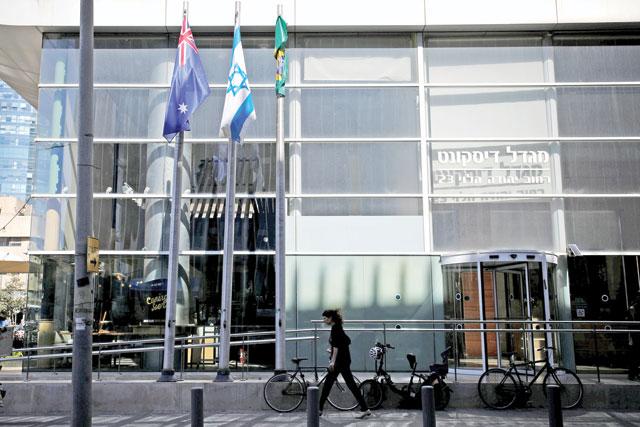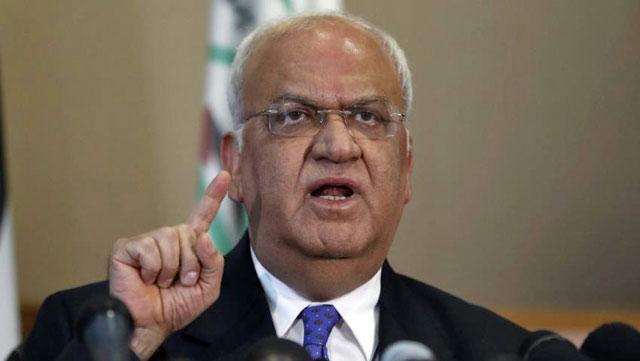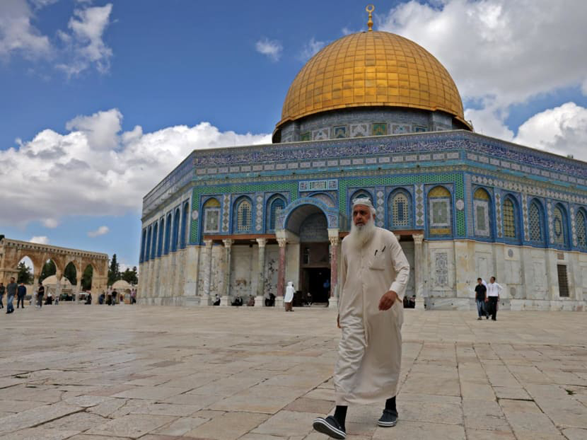You are here
Australia hesitates as Jerusalem embassy move draws fire
By AFP - Oct 17,2018 - Last updated at Oct 17,2018

The national flags of Australia and Israel are seen outside the building housing the Australian embassy in Tel Aviv, Israel, on Tuesday (Reuters photo)
SYDNEY — Facing a domestic backlash and the threat of foreign trade retaliation, Australia's prime minister on Tuesday appeared to slow-peddle a controversial decision to move the country's embassy to the occupied city of Jerusalem, saying he would first consult with allies.
As Scott Morrison stood accused of ditching 70 years of Australian foreign policy and reports emerged that Indonesia may suspend a planned bilateral trade deal, the prime minister told parliament no firm decision had been taken.
Hours after first floating the idea, Morrison said he would "canvass views" from regional leaders about the decision to follow US President Donald Trump's lead and move the embassy from Tel Aviv "before the government forms a particular view on this issue".
Most foreign nations have avoided locating embassies to the occupied city for fear of prejudging peace talks on the city's final status — until Trump unilaterally moved the US embassy there earlier this year.
Officials said the decision to move the Australian embassy has been under consideration for months. But Morrison's announcement was timed to coincide with a make-or-break moment for his fledgling premiership.
On Saturday voters in a key Sydney electorate will go to the polls, with Morrison’s Liberal party candidate, a former ambassador to Israel, trailing in the final stretch.
Defeat for Morrison’s candidate — in a constituency with a sizeable Jewish population — would spell the end of his government’s parliamentary majority and a bleak future for his months-old stint at the top of Australia’s rough-and-tumble political heap.
Although Israeli Prime Minister Benjamin Netanyahu hailed Morrison’s initiative, the response from neighbouring Indonesia — the world’s largest Muslim nation — was less welcoming.
Australia would be “violating international law” and UN security council resolutions if it proceeded with the embassy move, said Palestinian foreign minister Riyad Al Maliki, who was in Jakarta on an official visit Tuesday.
“Australia is risking (its) trade and business relationship with the rest of the world and particularly the Muslim world,” he added.
“I hope that Australia would reconsider that decision before it takes such action for election purposes.”
Australian state-backed broadcaster ABC reported a senior official in Jakarta saying a landmark trade deal between the two countries may now be put on ice.
Officials from Indonesia’s foreign and trade ministries told AFP they were unaware of any plans to suspend talks on the agreement, but Morrison indicated he had discussed the issue with President Joko Widodo in a series of calls.
“We will continue to work closely and cooperatively with our allies and our partners all around the world on these issue,” Morrison told parliament.
Morrison earlier said he was “open-minded” to “sensible” proposals to formally recognise occupied Jerusalem as the capital of Israel and move his nation’s embassy, a sharp break with the policy of successive Australian governments.
“We’re committed to a two-state solution, but frankly it hasn’t been going that well, not a lot of progress has been made, and you don’t keep doing the same thing and expect different results,” Morrison said.
“Scott Morrison is now so desperate to hang on to his job, he is prepared to say anything if he thinks it will win him a few more votes — even at the cost of Australia’s national interest,” said opposition Labour Party foreign policy spokeswoman Penny Wong.
Morrison came to power in August after a revolt by hard-line conservatives in the Liberal Party ousted his more moderate predecessor, Malcolm Turnbull.
Turnbull’s government had explicitly distanced itself from the decision by Trump to move the US embassy from Tel Aviv to the holy city, branding it “unhelpful” to the peace process.
Related Articles
RAMALLAH, Palestinian Territories — The Palestinian leadership on Saturday described Australia’s recognition of West Jerusalem as Israel’s c
SYDNEY — Australia said it would no longer recognise West Jerusalem as Israel’s capital on Tuesday, a policy reversal that prompted a curt r
SYDNEY — Revelations that Australia’s ex-prime minister secretly appointed himself to several ministerial posts during the pandemic sparked













